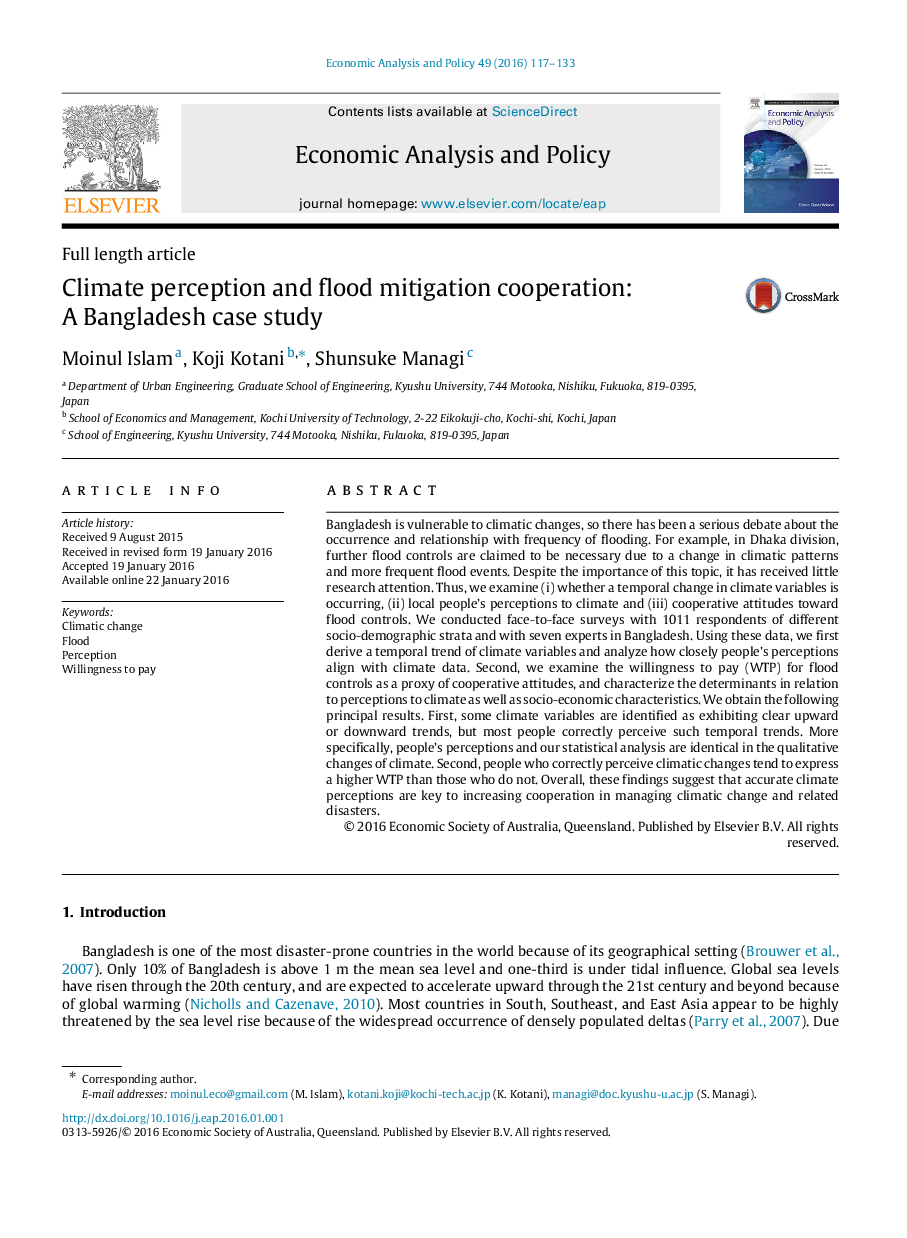| Article ID | Journal | Published Year | Pages | File Type |
|---|---|---|---|---|
| 5052735 | Economic Analysis and Policy | 2016 | 17 Pages |
Abstract
Bangladesh is vulnerable to climatic changes, so there has been a serious debate about the occurrence and relationship with frequency of flooding. For example, in Dhaka division, further flood controls are claimed to be necessary due to a change in climatic patterns and more frequent flood events. Despite the importance of this topic, it has received little research attention. Thus, we examine (i) whether a temporal change in climate variables is occurring, (ii) local people's perceptions to climate and (iii) cooperative attitudes toward flood controls. We conducted face-to-face surveys with 1011 respondents of different socio-demographic strata and with seven experts in Bangladesh. Using these data, we first derive a temporal trend of climate variables and analyze how closely people's perceptions align with climate data. Second, we examine the willingness to pay (WTP) for flood controls as a proxy of cooperative attitudes, and characterize the determinants in relation to perceptions to climate as well as socio-economic characteristics. We obtain the following principal results. First, some climate variables are identified as exhibiting clear upward or downward trends, but most people correctly perceive such temporal trends. More specifically, people's perceptions and our statistical analysis are identical in the qualitative changes of climate. Second, people who correctly perceive climatic changes tend to express a higher WTP than those who do not. Overall, these findings suggest that accurate climate perceptions are key to increasing cooperation in managing climatic change and related disasters.
Related Topics
Social Sciences and Humanities
Economics, Econometrics and Finance
Economics and Econometrics
Authors
Moinul Islam, Koji Kotani, Shunsuke Managi,
